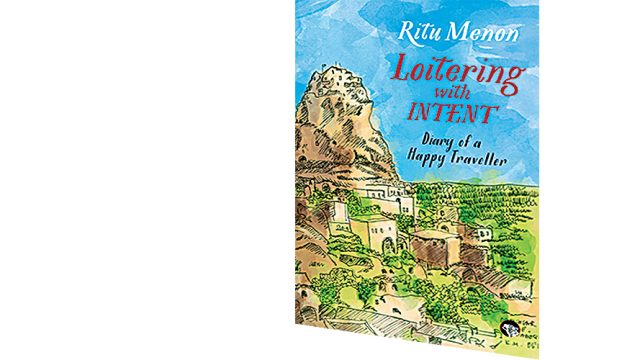Never ever have I chafed as much against space constraints while reviewing a book. A feast of anecdotes and experiences, writer-publisher Ritu Menon’s travelogue has the charming spontaneity of a real diary, but an impulsiveness too, that surfaces in the odd oversight: her allusions to “Siem Riep”, for instance, despite her extensive exploration of Cambodia’s archaeological pride—Angkor Wat and its outlying temples, and her baffling reference to Wordsworth’s famous ode, on which, moreover, she had written umpteen college tutorials as “Intimations of Mortality”. Also, for someone who marvels at the “enigma of belief—its strength and its power” in Borobudur, Indonesia, she appears curiously unattuned to what Yangon’s Shwedagon Pagoda symbolises for Burmese people living in a restrictive political environment, dismissing it as a monument to “materiality”.
Yet, Menon can be irresistibly persuasive. How easily she converted me to her views on Egypt and Cambodia, countries I had found underwhelming, and had me yearning for destinations (Bethlehem, for one) I had never considered visiting! Is it because of the candour and enthusiasm that lend her narratives a rare effervescence or her way with words which sometimes transforms her prose into poetry? It could well be the range and thoroughness of her research into her particular areas of interest (history, art, architecture, literature, religion, politics); her ability to capture the essence of people and places; her pitch-perfect ear for local intonations and accents (‘Madaam, one guide book, five dollaa….’ in Cambodia); her mouthwatering descriptions of delicacies that can make you dizzy with hunger; or the innate humanity that drives her activism.
I did wonder at the book’s seemingly random sequence of chapters, then realised how each narrative—the one on a pre-Islamic State Syria is especially poignant—fed off the previous one’s intensity, the crescendo reaching its climax in “Palestine: Grace under Repression”, a heartrending account of the systematic disempowerment of a people. Serving as a counterpoint to what’s gone before and affording a gentle release from the steadily built-up tension are the final chapters on Sicily, France’s wine country and England’s gardens and lakes and “grey, drippy, pissing wet rain”. It proves that despite the occasional fumble, Menon’s instincts as a writer are sharp, and underlying her endearingly informal way of involving you in her journeys are a keen mind and extraordinary depth of feeling.




